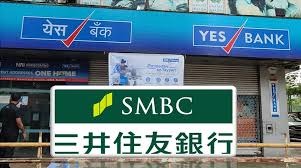
Follow WOWNEWS 24x7 on:

In a significant development in India’s ride-hailing and food delivery sector, Rapido is on the verge of securing a massive funding round worth $500-$550 million as Swiggy, the prominent food delivery giant, exits its stake in the bike taxi startup. This strategic shift marks the end of Swiggy’s ride-hailing association with Rapido amid rising business conflicts and competitive overlaps.
Key Highlights Of The Funding And Divestment
Rapido is finalizing a $500 to $550 million fundraising round through a mix of primary and secondary share sales.
Swiggy will offload its entire 12% stake in Rapido for around Rs 2,400 crore (approximately $270 million).
Dutch investment group Prosus, which is a major investor in both Swiggy and Rapido, will acquire a large portion of Swiggy’s stake.
WestBridge Capital, a US-based investment firm, will also acquire part of the stake from Swiggy.
This deal significantly raises Rapido’s valuation to over Rs 20,000 crore ($2.3 billion), more than doubling its valuation since 2024.
Rapido recently ventured into food delivery with a pilot called Ownly, directly competing with Swiggy’s core business, leading to the strategic exit.
Background: The Rise Of Rapido And The Swiggy Partnership
Founded in 2015 as a bike taxi platform, Rapido quickly expanded its services to include auto-rickshaws and recently initiated a pilot food delivery service in Bengaluru. Swiggy had initially invested over $180 million in Rapido in 2022, acquiring a 12% stake to integrate ride services with its food and grocery delivery operations.
Rapido’s diversified portfolio and reach across India’s tier-2 and tier-3 cities helped it gain more than 25 million customers and 1.5 million captains. The collaboration allowed Swiggy to leverage Rapido’s last-mile delivery capabilities, enhancing its service efficiency. However, Rapido’s move into food delivery created a conflict of interest, prompting Swiggy to reassess its investment.
Strategic Rationale Behind Swiggy’s Exit
Swiggy cited the foray of Rapido into food delivery as the primary reason for exiting the ride-hailing partnership. The overlapping business verticals created competitive tensions, making the association untenable. Swiggy’s CEO Harsha Majety articulated that the shift was a strategic decision to unlock shareholder value and streamline focus on Swiggy’s core strengths in food and quick commerce delivery.
The divestment provides Swiggy with significant liquidity, beneficial given its expanding Instamart quick-commerce operations that face increasing capital demands amid fierce market competition.
Implications For Rapido
The fresh capital influx will enable Rapido to accelerate its growth in mobility and quick commerce sectors. The funding round will be deployed towards expanding geographic coverage, technology enhancements, and scaling the Ownly food delivery service, which aims to disrupt the market with zero-commission models for restaurants.
The strategic backing from Prosus and WestBridge reiterates investor confidence in Rapido’s long-term vision as a multi-vertical delivery platform, growing beyond pure ride-hailing services.
Market And Industry Impact
This deal signals a reshuffle in India’s dynamic food and mobility tech landscape. It highlights the increasing convergence and competition between ride-hailing and food delivery platforms, as companies diversify and pursue new revenue streams.
Swiggy’s exit from Rapido is also notable amid reports of widening losses despite revenue growth, underscoring the capital-intensive nature of competing in hypercompetitive sectors. Rapido’s rising valuation and aggressive expansion strategy showcase contrasting growth trajectories.
What Lies Ahead
Rapido will strive to consolidate its position in ride-hailing while aggressively scaling food delivery through Ownly. Swiggy, meanwhile, aims to focus on strengthening Instamart and its quick-commerce business to achieve profitability. Both firms will likely navigate an increasingly complex market landscape defined by innovation, consolidation, and investor scrutiny.
Sources: The Economic Times, TechCrunch, Reuters, Business Standard, New Indian Express
Stay Ahead – Explore Now! ₹1 Trillion VRR Auction Signals RBI’s Proactive Liquidity Management Approach





